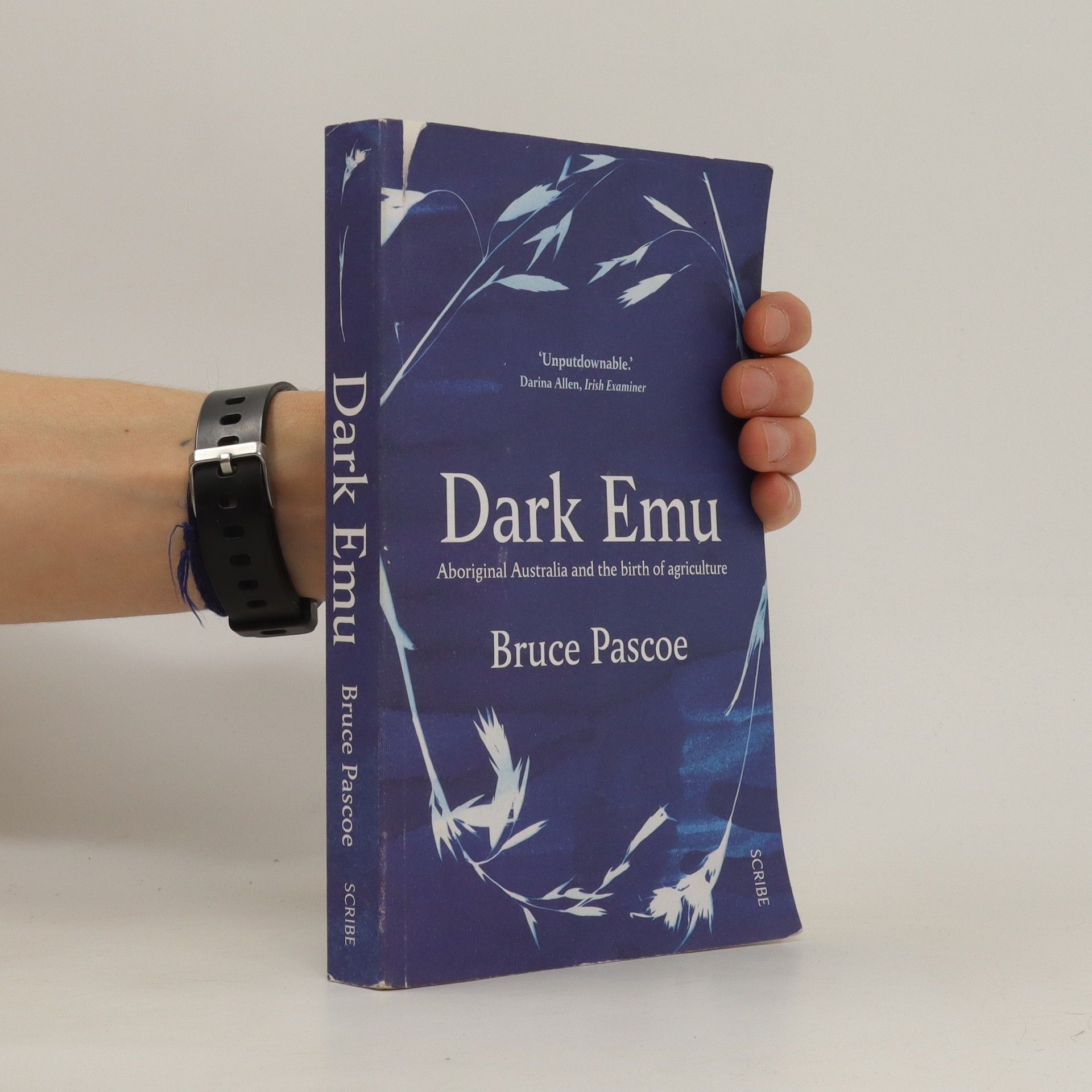A new, fully illustrated book from award-winning author Bruce Pascoe and photographer Vicky Shukuroglou that offers a deeper understanding of Australia and how best to travel
Bruce Pascoe Livres
L'écriture de Bruce Pascoe explore en profondeur l'histoire et la culture de l'Australie, en se concentrant particulièrement sur la découverte des récits souvent négligés de ses peuples autochtones. Son œuvre met en lumière les sociétés complexes et les pratiques sophistiquées de gestion des terres qui ont existé en Australie pendant des millénaires, remettant en question les récits historiques conventionnels. Par ses contributions littéraires, Pascoe cherche à promouvoir une compréhension et un respect plus profonds des traditions et des systèmes de connaissances des autochtones australiens. Son écriture agit comme un pont vital, reliant le passé et le présent et offrant une perspective plus nuancée sur l'identité australienne.






Dark Emu
- 240pages
- 9 heures de lecture
History has portrayed Australia's First Peoples, the Aboriginals, as hunter-gatherers who lived on an empty, uncultivated land. History is wrong. In this seminal book, Bruce Pascoe uncovers evidence that long before the arrival of white men, Aboriginal people across the continent were building dams and wells; planting, irrigating, and harvesting seeds, and then preserving the surplus and storing it in houses, sheds, or secure vessels; and creating elaborate cemeteries and manipulating the landscape. All of these behaviors were inconsistent with the hunter-gatherer tag, which turns out have been a convenient lie that worked to justify dispossession. Using compelling evidence from the records and diaries of early Australian explorers and colonists, he reveals that Aboriginal systems of food production and land management have been blatantly understated in modern retellings of early Aboriginal history, and that a new look at Australia's past is required -- for the benefit of all Australians. Dark Emu, a bestseller in Australia, won both the Book of the Year Award and the Indigenous Writer's Prize in the 2016 New South Wales Premier's Literary Awards.
Anthology of short stories ; includes "Black velvet night" (pp.9-12)
Yen Se has lost everything to the Khan's brutality. Left with one eye and one leg, he is forced out of his home village to work in the city as a horse handler. Witness to the Khan's violent crusade, their raids sweeping across Eurasia, he travels with the theatre of war, but exists outside of it; stunned every morning to find himself alive. Yen Se moves randomly across Europe with a loose band of survivors - men who think of survival, men who think of resistance, and women who dare to dream of peace. Whilst narrated by a male, women are at the forefront of this story; often the most active of the characters, both for their plight and for their guidance. Imperial Harvesttells the story of war, but more importantly, of hope.
Through compelling first-person accounts and historical research, this book challenges the traditional narrative of pre-colonial Aboriginal Australians as mere hunter-gatherers. It presents a vivid depiction of a land rich in cultivated farming, permanent settlements, and sustainable practices. Aimed at readers aged 10 and up, it encourages a re-evaluation of Australia's history before European colonization. Exquisitely illustrated, it adapts Bruce Pascoe's award-winning work for younger audiences, offering a transformative perspective on Aboriginal culture and its environmental stewardship.
Landscape as Protagonist presents findings, essays and interviews that imagine landscape as the place to begin a built project, not a way to finish it. The book's content is informed by a diverse group of people including landscape architects, architects, gardeners, Indigenous knowledge-holders, horticulturalists, property developers, writers, researchers and artists; addressing the problematic realities of trying to deliver meaningful landscapes in an urban setting.